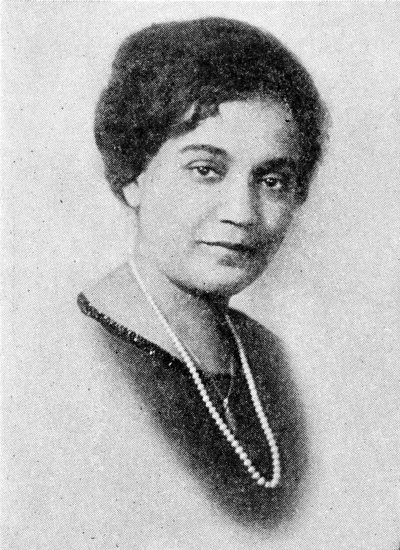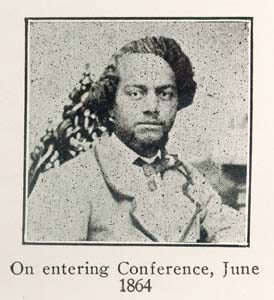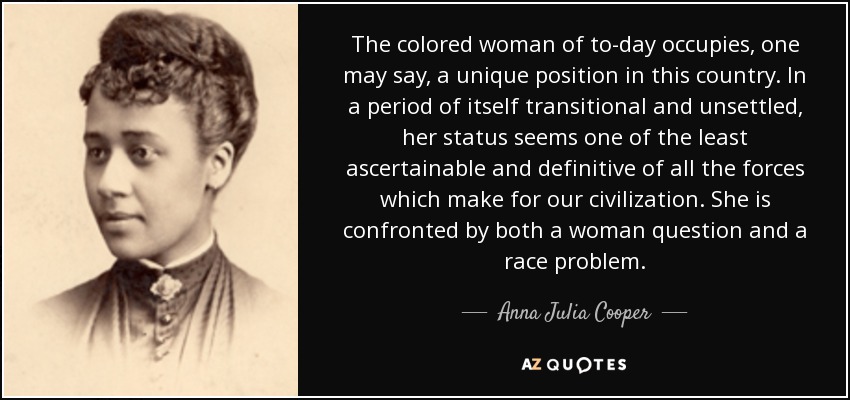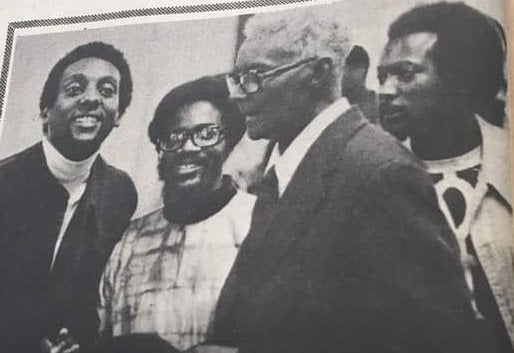Impact of the Haitian Revolution on Resistance History
African American scholars have made a monumental contribution to the discovery and analysis of the struggles against enslavement and colonialism

All Global Research articles can be read in 51 languages by activating the Translate Website button below the author’s name (only available in desktop version).
To receive Global Research’s Daily Newsletter (selected articles), click here.
Click the share button above to email/forward this article to your friends and colleagues. Follow us on Instagram and Twitter and subscribe to our Telegram Channel. Feel free to repost and share widely Global Research articles.
Donation Drive: Global Research Is Committed to the “Unspoken Truth”
***
This year represents the 98th anniversary of the launching of “Negro History Week” in 1926, later named Black History Month in 1976, after the federal government issued a proclamation in recognition of the contributions of African American people under the administration of President Gerald R. Ford.
The commemoration was founded by Dr. Carter G. Woodson, a pioneering scholar and public intellectual who founded the Journal of Negro History in 1915 and the Association for the Study of Negro Life and History the following year, 1916.
Woodson’s origins within the African American working class is a demonstration of the determination to seek formal education in the aftermath of the Civil War and Reconstruction in the South and other regions of the United States. Although Woodson came from humble beginnings and worked as a coal miner in West Virginia, he was able to put himself through High school, college and was eventually awarded a doctoral degree in history from Harvard University.
After teaching high school and college in Washington, D.C., Woodson became an independent scholar establishing the aforementioned journal, historical association and week of activities related to the achievements of African Americans and people of African descent. He established a headquarters in the nation’s capital while traveling extensively to deliver lectures in churches, community centers, schools and colleges.
Although the historical studies of African enslavement, rebellions, the Civil War, Reconstruction and the Jim Crow eras were dominated by Southern segregationists and their sympathizers, an entirely different approach to these periods in history were soon advanced by African American and African Caribbean researchers and writers. Woodson was representative of a cadre of scholars which focused on the necessity of reversing institutional racism and national oppression in the U.S. and other geopolitical regions of the world.
The Haitian Revolution and Its Significance: Contributions of T.G. Steward
Between 1791-1804, the African population of Haiti rose up in a revolutionary war to end enslavement and declare themselves as an independent republic. These developments on this Caribbean island-nation known as Hispaniola struck fear in the slavocracy within other areas throughout the Antilles along with South and North America.
Image: T.G. Steward
In the first volume and issue of the Journal of Negro History founded by Woodson, there was a book review of a study published by Theophilus Gould Steward (1843-1924) in 1914 entitled “The Haitian Revolution, 1791 to 1804”. The review was written by Jessie Redmond Fauset, African American woman editor and literary figure, who says that:
“Although most of the book is naturally concerned with the revolutionary period, the author brings his account up to date by giving a very brief resume of the history of Haiti from 1804 to the present time (1915). This history is marked by the frequent occurrence of assassinations and revolutions, but the reader will not allow himself to be affected by disgust or prejudiced at these facts particularly when he is reminded, as Mr. Steward says, ‘that the political history of Haiti does not differ greatly from that of the majority of South American republics, nor does it differ widely even from that of France.’”
Steward was born in Bridgeton, New Jersey in 1843. He was educated and later entered the ministry in 1864 and traveled to South Carolina in the immediate aftermath of the Civil War where under the direction of African Methodist Episcopal Church (AME) Bishop Daniel Payne, he worked to establish AME churches in South Carolina and Georgia. During the period from 1882-1891 Steward conducted missionary work in Haiti.
By 1891 he had entered the U.S. military as one of the few African Americans in the officer corps. He would serve in the 25th Infantry Regiment working as a military chaplain and educator. Steward also held several posts in the Western U.S. and the Philippines.
He retired in 1907 at the age of 64. After touring Europe with his second wife, Dr. Susan McKinney, a pioneering African American physician, author and professor. Later Steward and McKinney-Steward would settle in Ohio where they worked at Wilberforce University.
The work of the Stewards was instrumental in providing education and medical care to African Americans only one and two generations removed from enslavement. Their interests in the developments of Haiti were a clear reflection of the international and Pan-African outlooks of many during the late 19th and early 20th centuries.
Anna Julia Cooper on the Haitian Revolution and Pan-Africanism
Born during 1858 in Raleigh, North Carolina, Anna Julia Cooper, became an advocate for the education of African American women, equal rights for women and the unity of African people around the world. She was a participant in the 1893 Chicago Congress of Representative Women as well as the 1900 Pan-African Conference held in London.
Despite widespread institutional racism and sexism, Cooper was able to earn her bachelor’s degree (St. Augustine College), masters (Oberlin College) and a Ph.D. from the Sorbonne in Paris. Her dissertation defended in 1925 in France was later translated, published and entitled “Slavery and the French Revolutionists”.
One source on the significance of Cooper’s writing on the Haitian Revolution noted that:
“In her 1925 doctoral dissertation at the University of Paris, African American scholar Anna Julia Cooper (1858-1964) examined the relations between the 18th century revolutionists in Paris and the representatives and inhabitants of the richest French colony, San Domingue. She argued that the legalized slave trade became a critical issue in the struggle over the rights of man during the French Revolution and that when the revolutionists of Paris deflected the question of slavery in San Domingue, the people of France lost the opportunity to escalate their liberty and their equality. Cooper insisted that to understand the French Revolution and its repercussions, it is necessary to add the dimension of race. Historian Frances R. Keller has made this unique work available in English. Through her interpretive essays, Keller places Cooper’s dissertation in the context of her life and scholarship. Keller also provides an essential historical look at the international events that led up to the bloody revolutions in France and Haiti.”
Cooper’s scholarly and political work has gained greater recognition over the last decade. She lived to be 105 years-old, making her transition in 1964, after serving many years as an adult educator in Washington, D.C. committed to the literacy and professional training of the African American people. Her book entitled “A Voice from the South: By a Black Woman of the South”, published in 1892, has been hailed in recent years as a major contribution to African American Feminist Thought. (See this)
C.LR. James and the Black Jacobins
CLR James with Stokely Carmichael and Walter Rodney
Cyril Lionel Robert James was born in 1901 in the Caribbean island-nation of Trinidad and Tobago. During his upbringing he developed a keen interest in literature, political theory and historical studies.
James migrated to Britain during the early 1930s where he became involved in the socialist movement. Later he joined Leon Trotsky in efforts to build an alternative to the post-1924 events in the Union of Soviet Socialist Republics (USSR) under the leadership of Joseph Stalin.
After the October 1935 invasion of Abyssinia by the Italian fascist government of Benito Mussolini, James worked with his childhood friend from Trinidad, Malcolm Nurse, then known as George Padmore, where they built political opposition to the occupation of this Horn of Africa state. By 1935, Padmore had broken with the Communist International over ideological differences. However, along with James, they remained committed socialists.
In 1937-38 while in London, James published three books: “A History of Negro Revolt”, “World Revolution from 1917-1936” and “Black Jacobins”, a study on the Haitian Revolution. Perhaps his best-known work, Black Jacobins, prefigured the national liberation movements which emerged full-blown after the conclusion of World War II. (See this)
James remained active after traveling and living in the U.S. between 1938-1953. After his deportation in the early 1950s, his influence grew during the 1960s and 1970s. He would later return and teach at several universities in the U.S. advancing his theories on Pan-Africanism and World Revolution.
Although James distanced himself from Trotskyism during the late 1940s and early 1950s, he maintained that the political parties and popular movements which led the independence efforts in Africa, Asia and Latin America from the 1940s to the 1970s confirmed his ideas on the central role of mass struggles in the transformation of international affairs. James eventually returned to Britain in the 1980s where he died in London in 1989 at the age of 88.
The work of these African American and African Caribbean scholar-activists involving Haiti illustrates the central role of resistance within the historical trajectory of the world. Their independent research and reinterpretation of the periods of enslavement and colonialism provide a working alternative to the ideas advanced by imperialism which justifies its existence as an exploitative and oppressive system.
*
Note to readers: Please click the share button above. Follow us on Instagram and Twitter and subscribe to our Telegram Channel. Feel free to repost and share widely Global Research articles.
Abayomi Azikiwe is the editor of the Pan-African News Wire. He is a regular contributor to Global Research.
All images in this article are from the author; featured image: Jessie Redmond Fauset




